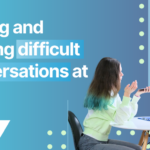Looking for an alternative to academic qualifications at Level 2? You have a lot of vocational options that you can do as well as your core subjects like Maths and English…
Level 2 qualifications are what you’ll study at secondary school and choosing which subjects you want to continue with can be a scary time. You might be wondering how to decide, what to do if you make the wrong choice, and whether these decisions will impact the rest of your life.
First: don’t panic!
The subjects you study are important, but they can’t and won’t define the rest of your life. And if you start doing one subject and quickly realise it’s not right for you, many schools will let you swap to another subject.
Today we’re looking at one of the options you might be wondering about: vocational subjects.
What are Vocational Qualifications?
There are some academic subjects students have to take, including English and Maths. These are required and a part of your core curriculum. Some schools also have their own requirements, such as requiring students to take a modern foreign languages or humanities subject. But apart from that, you get to choose your own options.
In short, vocational qualifications are those that are practical and directly related to a specific job or career path. A vocation is just another word for a job or career.
Most vocational subjects offer a mix of theoretical and hands-on learning, allowing you to get a good foundational understanding of the subject while also getting plenty of actual experience.
What Types of Qualifications are Available?
In secondary school, those interested in vocational qualifications have many options to choose from:
- GCSEs in vocational subjects. Most GCSEs are more academic and theoretical, but a small number of vocational subjects are available. They include Business, IT, Computer Science, and Engineering.
- OCR Cambridge Nationals. These are designed for students aged 14-16, just like GCSEs. They take two years of study to complete. Some of the subjects available include Child Development, Engineering, ICT, and Sport Science. Check out the full list here. There are new subjects launching from 2022!
- BTEC First Diploma. BTEC qualifications are available at many different levels, and taken by students from age 14 all the way up to adults. A BTEC First Diploma is the equivalent to 4 GCSEs. Subjects you can study include Music, Performing Arts, Sport, and Business.
- NVQs: these are practical-work based awards in England, Wales and Northern Ireland which have work related tasks, observational and portfolio assessments. They are available in a range of subjects and can lead to completing a NVQ Level 3 after you have completed Level 2.
- SVQs: these are similar to NVQs, but are available in Scotland, hence their name Scottish Vocational Qualifications. They’re available in a range of subjects like accounting, childcare, construction, dental nursing, and oil and gas.
Not all schools will offer all of these, so you’ll need to explore what’s available at your school – or consider switching schools if that’s the best thing for you.
Who are Vocational GCSEs and Similar Qualifications For?
Vocational GCSEs and GCSE alternatives are ideal for those who have a good idea of what job or employment sector they want to go into, and want to start preparing for the world of work or further job-based training.
If you’re a practical and hands-on person who learns best by doing, you are likely to thrive on a vocational course.
It’s important to note that vocational qualifications aren’t necessarily easier than GCSEs. They’re still a rigorous programme of study and you’ll be expected to work hard, complete homework, and prepare for your final exams or assessments. They’re a different kind of qualification, and one that works better for some people.
What Can I Do After I’ve Completed a Vocational GCSE or Equivalent?
Vocational GCSEs or other vocational qualifications leave you with lots of great options! So don’t worry if you’re not sure what you want to do next. Here are a few options you might want to consider:
- Further study. For example, you might choose to take A Levels or other subject specific qualifications. A Levels are academic qualifications, but there are also many vocational equivalents on offer. For example, you might choose to study for a higher level BTEC qualification, or take another type of qualification such as T Levels. At some schools and colleges, you can take a mix of academic and vocational subjects.
- In an apprenticeship scheme, you work for an employer and train for a qualification at the same time. It gives you real, on-the-job experience and lets you earn a wage while you study. In many apprenticeship programmes, you’ll need to go to college part time – usually one day per week. Apprenticeships are available in an enormous array of trades, from hair and beauty to plumbing, IT, and construction.
- Go to work. Your vocational GCSEs or equivalents will put you in a great position to get a job when you leave school.
Can I Do a Vocational GCSE Even If I’m Not Sure of My Career Plans?
Absolutely!
Here’s something you might not realise: a lot of people don’t know what future career they want to do when they’re 14. And many more change their minds. So don’t think you have to have your entire life planned out to make good GCSE choices. You don’t!
At this stage, the most important thing to do is to identify your strengths.
Every GCSE, both academic and vocational, gives you transferable skills that you can use in other areas of work, life, and study. So even if you don’t end up working in that particular field, your qualification will never be a waste.
Get Some Advice
Still confused about your GCSE options? There is plenty of support out there, so ask for some help and advice. Talk to your parents or guardian, a trusted teacher, your school’s careers expert, or an older sibling or friend who has been there. They all want you to succeed.
Whatever you decide, good luck – we know you’ll smash it!













